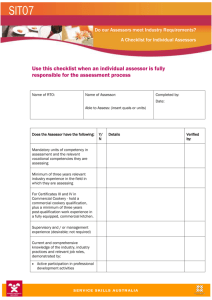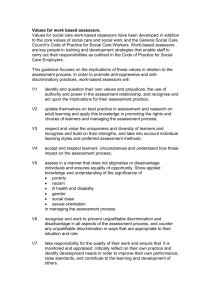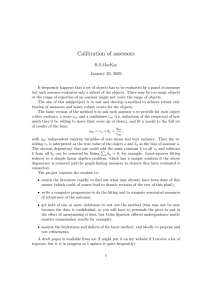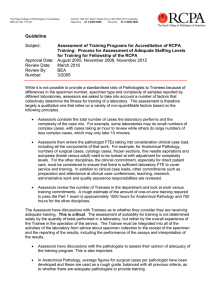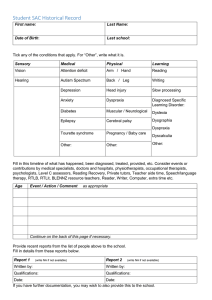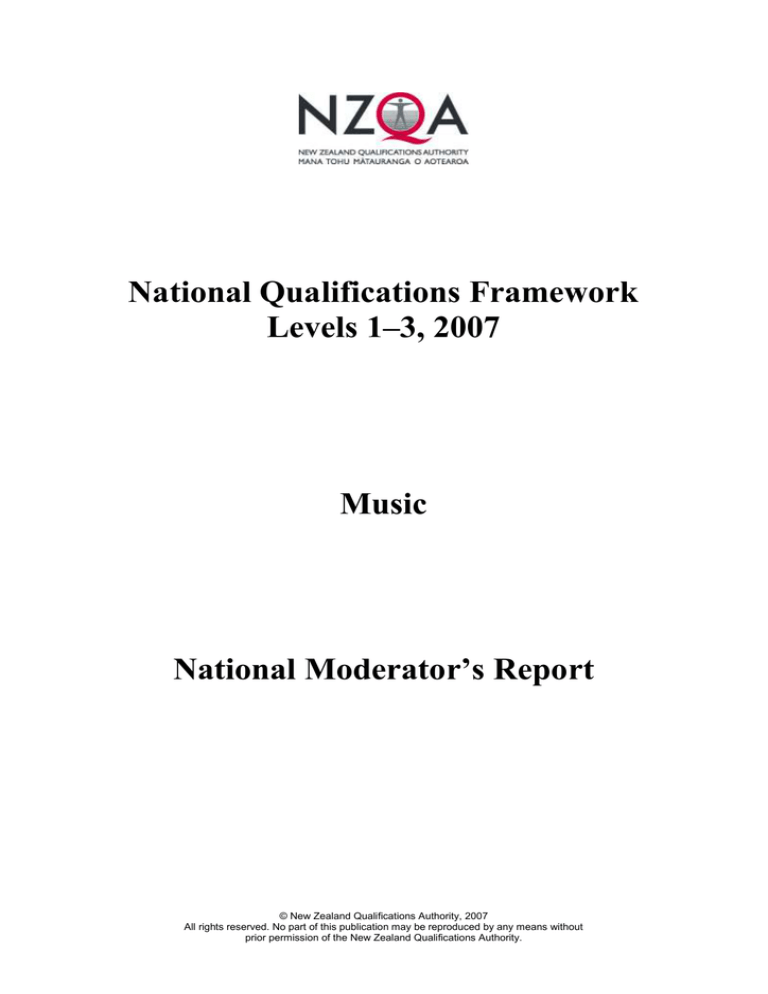
National Qualifications Framework
Levels 1–3, 2007
Music
National Moderator’s Report
© New Zealand Qualifications Authority, 2007
All rights reserved. No part of this publication may be reproduced by any means without
prior permission of the New Zealand Qualifications Authority.
National Qualifications Framework Levels 1–3 (Music) 2007 — page 2
National Moderator’s Report
General Guidance for Assessors of Achievement and Unit Standards
The purpose of external moderation is to provide reassurance that assessor judgments are at the
national standard and are made on the basis of assessment materials that are fair and valid.
All assessment materials are expected to:
give the learner the opportunity to meet the requirements of the standard
have an assessment schedule that gives evidence of appropriate learner responses and clear
judgments at all levels.
The Ministry of Education contracted subject experts to write assessment resources for
achievement standards. These are not pre-moderated. The intention is that they are modified to
suit teaching programmes and learner needs. They do not provide “rules” but suggest different
ways of assessing to the nationally registered standard.
General Overall Comment
Assessors are to be complimented on the improving quality of video/DVD materials, making
performances much easier to moderate in 2007. It should be noted that many alternatives to the
‘required’ video or DVD format are being submitted. This has proven troublesome for some
moderators as there are several software formats being used most of which are not available to the
moderators. Submissions should continue to be in video or DVD only.
In their realisation, some compositions still use software that is of dubious quality, but on the
whole, it appears that that standard of musical competence is on the rise. In addition the
acceptance by the universities of the Making Music strand at level 3 has contributed to an increase
in student numbers and quality.
Assessors of achievement standards continue to use exemplars from the TKI website and a few
are now modifying the tasks to suit their own teaching and learning programmes. It is anticipated
that new on-line assessment resources will be prepared for the updated level 1 achievement
standards for 2008. The tasks on the website provide suitable examples of how tasks could be
structured and the generic assessment schedules are easily modified to align with specific school
contexts.
Assessors are reminded of the importance of preparing tasks that reflect the requirements of the
standard and to prepare an Assessment Schedule that opens out in more detail the expectations of
the Achievement Criteria cited in the specific standards. Assessors are reminded that the
Assessment Schedule is a useful tool in providing feedback to students—it makes the system
more transparent and ensures that assessors are commenting on the requirements of the standard
and not some other imaginary judgement. The teasing out of specific terms in the assessment
schedule would be particularly helpful for students at level 1. Some assessors are still only
submitting a copy of the standard along with their student evidence and this matter needs some
attention.
When making judgements assessors need to look for a ‘sufficiency’ of evidence rather than
ticking off boxes as each small component is addressed. This means that a more holistic form of
assessment can take place, one that addresses a broader view of student competencies than the
more pedantic methods that tick boxes often encourage.
National Qualifications Framework Levels 1–3 (Music) 2007 — page 3
AS 90776 Prepare and present performances of music as a featured soloist
Evidence of reflection and evaluation is often not submitted along with the performances. It is
recommended that assessors find tangible ways of dealing with this, for example, where the
teacher has a conversation with the student, some record needs to be taken and submitted for
moderation. Assessors should also ensure that sufficient evidence is submitted for this 8 credit
standard, two or three short pieces do not comprise sufficiency.
Additional notes
When assessing the three levels of group performance standards, assessors should ensure that
each candidate is performing a unique and recognisable part. Too many submissions have
candidates sharing a part with several others and this is especially noticeable in choral
submissions. Where this occurs, some schools have taken the initiative to also re-record the
choral piece with only one student per part so that candidates can be assessed more effectively.
Many submissions for the Level 3 performance and composition standards do not contain either
adequate or reflective statements from candidates, or evidence that this has been attempted. This
is a significant part of each standard and grades should not be awarded where this has not
occurred.


